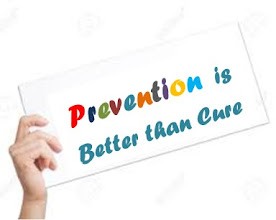What is Meant By Healthy Eating?

The best description of a healthy
diet should not about strictly limitation, but should be to replace processed
food with unprocessed and non-organic replace with organic whenever possible.
Eating food that is as close as possible to the way natural made. It can lead
to huge benefits.
The Basic of healthy eating is a balance of protein, fat, carbohydrates, fiber, vitamins, and minerals in our daily diets. We don’t need to eliminate certain food from our diet, but we need to select the healthiest options.
Protein provides energy and supports
your mood. It is an important nutrient that is need deeded to build, maintain
and repair the body tissues, cell and organs. It gives you the energy to get up
and go and keep going. But too much protein can be harmful to those with kidney
disease, diabetes, and some other conditions.
Fat is a type of nutrient, it source
of energy which human body needs. The aim of fats is to absorb vitamins, and to
protect your heart and brain health. When we think about fats, the first thing
come in your mind, that eating fat will add inches to our waistline, raise
cholesterol, and causes health problems. But the truth is that not all fat is
the same.
There are bad fats and as well as
good fats. Artificial trans fats and saturated fats are bad fats that will add
inches to your waistline, raise cholesterol, and causes health problems.
Basically fiber is associated with
digestive health and bodily functions. But, the reality is consuming a high
fiber in dietary, fiber can do so much more than keep you regular. It can lower
risk for heart disease, stroke, and diabetes, help skin, help in losing weight
and even help prevent colon cancer.
Since, fiber is the plant-based, examples are; grains, fruits, vegetables, nuts, and beans that the body can’t break down. It passes through the body undigested. Keep digestive system clean and healthy, make easing bowel movements, and flushing the extra cholesterol and harmful carcinogens out of the body. For more detail click here
Calcium is one of the essential
nutrient in our diets. Every cell in the body uses calcium, including the
nervous system, muscles, and heart. Human body uses calcium to build strong
bones and teeth, keep you healthy while getting older, send messages through
the nervous system, help your blood clot, your muscles contract, and regulate
the heart’s heartbeat.
One of the basic functions of
carbohydrates is to provide energy to your body. Although a process called
cellular respiration your cells convert carbohydrates into the fuel molecule
ATP.
Carbs have two categories, one is
simple carbs and the other is complex carbs. Simple carbs absorbed quickly
in the body which leading to blood sugar spikes. Simple carbs are often
found in foods and drinks like table sugar, cake and soda.














Comments
Post a Comment